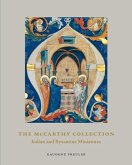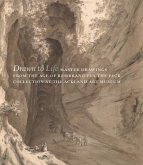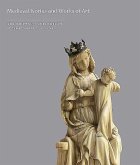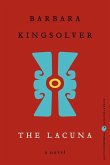"This handsomely produced publication is the first of a two volume set exploring an outstanding collection of leaves and miniatures from medieval manuscripts. Brimming with beautiful illustrations, this welcome contribution to medieval scholarship covers a period from the late 9th to the late 15th centuries and incorporates new discoveries in this still growing field. The turbulent times when Napoleon's troops were sweeping over Europe under the banner of secularization, seeking to suppress ecclesiastical influence within the sphere of political power, had disastrous consequences especially for ecclesiastical libraries, which were broken up and looted. The Italian religious houses had their cultural treasures destroyed or moved out of context and spread all over the world to satisfy a growing market for medieval art. These fatal years (1796-99) coincide with a major interest in early Italian painting, when French and English connoisseurs joined their Italian colleagues in a systematic study of early Italian art, producing fundamental studies on the subject. Essentially the deplorable practice of breaking up manuscripts and liturgical books was not all that different from the inglorious process of dismembering giant medieval altarpieces, whose single pieces were made available to a growing market and, consequently, dispersed among different collections. Thus, in the present day, one of the major tasks of the art historian is the attempt to reassemble these fragments and present them in virtual reconstructions, reconstituting their original context. By doing this, scholars create the foundation for any further art-historical analysis of a work of art. This task is one of the important objectives in cataloguing the present collection. The miniatures and single leaves in the McCarthy collection, which has been formed in the past two or three decades - between 1990 and today - are manifestly the fruit of the destructive, but at the same time a conservational effort. Even though assembled in relatively recent years, the McCarthy collection stands in line with many similar anthologies of miniature in private or public hands. However, by contrast to other similar collections, the McCarthy collection has not limited its focus just on one school of European illumination, the Italian centres of illumination, but aims to present a vast panorama of this sophisticated art, which, to use Dante's words, was called 'illumination' ('... quell arte ch'alluminar chiamata áe in Parisi'; Purgatorio, XI, 79-80). The present volume is dedicated to the holdings of single leaves and miniatures from medieval Italian manuscripts, which cover a period from the late 9th to the late 15th centuries, and are enriched by a few Byzantine items, appropriately included here and discussed by Georgi Parpulov. The focus on late 13th- and early 14th-century illumination in the collection demonstrates McCarthy's predilection for the medieval and early Gothic world, which also becomes apparent in his holdings of French and German illumination, to be discussed by Peter Kidd in volume II, to be announced shortly."--
Hinweis: Dieser Artikel kann nur an eine deutsche Lieferadresse ausgeliefert werden.
Hinweis: Dieser Artikel kann nur an eine deutsche Lieferadresse ausgeliefert werden.








